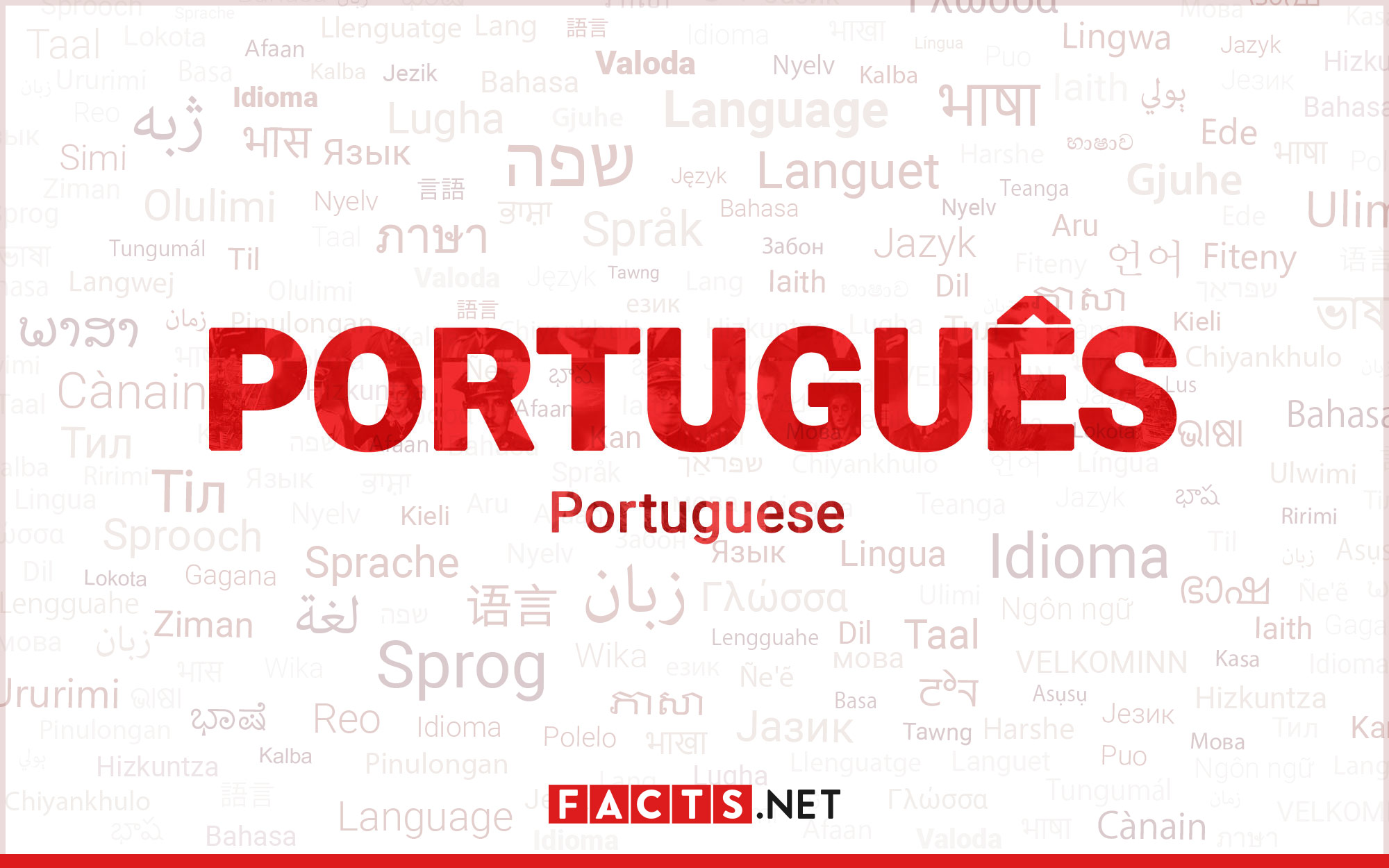
Portuguese is a fascinating language with a rich history, and it’s spoken by millions of people around the world. Originating from Portugal, this Romance language is also the official language of several countries, including Brazil, Mozambique, Angola, Cape Verde, and Guinea-Bissau. Whether you’re considering learning Portuguese or simply interested in discovering more about this unique language, we’ve compiled a list of 19 intriguing facts that will pique your curiosity. From its Latin roots to Portugal’s influence on global exploration, and even its connection to music and poetry, Portuguese is a language that holds many surprises. So, let’s delve into these fascinating facts about Portuguese and gain a deeper understanding of its significance and cultural impact.
Key Takeaways:
- Portuguese is spoken by over 260 million people and is the official language of multiple countries, making it a significant language with cultural and economic importance.
- The Portuguese language has diverse dialects, a rich literary heritage, and opens doors to exploring various cultures, making it a language of opportunity and growth.
The Portuguese language is spoken by more than 260 million people worldwide.
Portuguese is the sixth most widely spoken language globally, and it is the official language of Portugal, Brazil, Mozambique, Angola, Cape Verde, Guinea-Bissau, and São Tomé and Príncipe. It is also one of the official languages of East Timor, Equatorial Guinea, and Macau. With such a vast number of speakers, it holds significant cultural and economic importance.
Portuguese is the only official language of multiple countries in both Europe and the Americas.
Portugal and Brazil are the only countries in Europe and the Americas, respectively, where Portuguese is the official language. This linguistic distinction contributes to the unique cultural heritage and diplomatic ties between these nations.
The Portuguese alphabet contains 26 letters.
The Portuguese alphabet is based on the Latin script and consists of the same 26 letters as the English alphabet. However, it includes additional diacritics such as accents and cedillas that modify the pronunciation of certain letters.
Portuguese is one of the Romance languages.
As a Romance language, Portuguese shares common roots with other languages like Spanish, Italian, French, and Romanian. This linguistic connection allows for easier comprehension and learning for speakers of other Romance languages.
The first Portuguese book was published in 1482.
The first book ever printed in Portuguese was “O Livro das Obras” (The Book of Works) by Francisco da Cruz. This marked a significant milestone in the history of the Portuguese language and further contributed to its development and dissemination.
Portuguese is the fastest-growing European language after English.
With the increasing global influence of Brazil and the growing economic importance of Portuguese-speaking African countries, the Portuguese language has experienced remarkable growth and is considered one of the fastest-growing European languages in the world.
The Portuguese dialects vary significantly across regions.
Portuguese dialects differ not only between Portugal and Brazil but also within different regions of these countries. These variations can range from pronunciation and vocabulary to syntax and grammar, adding richness and diversity to the language.
Portuguese is the most widely spoken language in South America.
Due to Brazil’s large population, Portuguese is the dominant language in South America. It is spoken by over 200 million people in Brazil alone, making it the most widely spoken language in this continent.
The Portuguese language has a strong influence in the music world.
Portuguese music, particularly from Brazil, has gained international acclaim and influence across various genres, including samba, bossa nova, and fado. Artists like Antonio Carlos Jobim, Caetano Veloso, and Mariza have contributed to popularizing the Portuguese language through their musical compositions.
Portuguese has several dialects with African and Asian influences.
Through colonization and trade, Portuguese has influenced and been influenced by various African and Asian languages. In countries like Mozambique, Angola, and Macau, the local vernacular has shaped the Portuguese language, resulting in distinctive regional dialects.
The Portuguese vocabulary is heavily influenced by Arabic.
During the Moorish occupation of the Iberian Peninsula, Arabic had a significant impact on the Portuguese language. Today, around 3,000 Portuguese words can be traced back to Arabic origins, enriching the language with diverse vocabulary.
Fernando Pessoa is one of the most celebrated Portuguese poets.
Fernando Pessoa is known for his unique literary style and profound philosophical insights. With his heteronyms, such as Alberto Caeiro and Ricardo Reis, Pessoa contributed to the richness and complexity of Portuguese poetry.
Portuguese has a polite form of address called “você.”
Similar to the Spanish “usted,” “você” is used as a formal way of addressing someone respectfully in Portuguese. It is more commonly used in Brazilian Portuguese, indicating politeness and respect towards others.
The Portuguese phrase “saudade” has no direct translation in English.
“Saudade” is a word deeply rooted in Portuguese culture, expressing a unique feeling of nostalgia and longing for something or someone that is absent. Its richness and complexity make it difficult to translate into other languages.
Portuguese is known for its melodious and expressive pronunciation.
The Portuguese language is renowned for its melodic and expressive nature. The pronunciation of certain vowel sounds and the rhythm of speech contribute to the distinct musicality of Portuguese.
Portuguese has a robust literary heritage.
With notable authors like José Saramago, Eça de Queirós, and Machado de Assis, Portuguese literature has a rich and diverse history. These literary works have contributed to the cultural identity and heritage of the Portuguese language.
Portuguese is the official language of the Community of Portuguese Language Countries (CPLP).
The CPLP is an intergovernmental organization composed of Portuguese-speaking countries. Its aim is to promote cultural, political, and economic cooperation among its member states, highlighting the significance of the Portuguese language.
Portuguese is the gateway to understanding the Lusophone world.
The Portuguese language opens the doors to exploring various cultures and countries within the Lusosphere, which includes nations across Europe, Africa, and Asia. Understanding Portuguese provides access to a rich tapestry of history, art, music, and literature.
Portuguese is a language of opportunity and economic growth.
With Brazil’s rapidly developing economy, the increasing importance of Portuguese-speaking African nations, and the expanding global reach of Portuguese culture, learning the Portuguese language can open up opportunities for business, trade, and cultural exchange.
Conclusion
In conclusion, Portuguese is a fascinating language with a rich history and cultural significance. From its roots as a Romance language to its widespread usage in countries across the globe, Portuguese has established itself as an important language in the world today. Whether you’re interested in learning Portuguese for travel, business, or personal reasons, immersing yourself in this beautiful language can open up new opportunities and experiences. With its melodic rhythms and unique vocabulary, Portuguese offers a delightful linguistic journey for language enthusiasts. So, why not embark on this linguistic adventure and discover the captivating world of Portuguese?
FAQs
1. How many people speak Portuguese?
Portuguese is spoken by over 260 million people worldwide, making it one of the most widely spoken languages in the world.
2. Which countries speak Portuguese?
Portuguese is the official language of Portugal, Brazil, Mozambique, Angola, Cape Verde, Guinea-Bissau, São Tomé and Príncipe, and East Timor. It is also spoken in several other countries and regions, including Macau, Goa (India), and parts of Africa.
3. Is Portuguese difficult to learn?
While learning any language takes time and effort, Portuguese is considered relatively easy for English speakers to learn. The grammar and pronunciation are more straightforward compared to other Romance languages.
4. How similar is Portuguese to Spanish?
Portuguese and Spanish are both Romance languages and share many similarities. If you already speak Spanish or have knowledge of Spanish, it can make learning Portuguese easier due to the similarities in vocabulary and grammar.
5. Can I use Portuguese for business?
Absolutely! Portuguese is an important language for international business, especially in Brazil and Portugal. Being able to communicate in Portuguese can open up opportunities and help you build stronger relationships with Portuguese-speaking clients and partners.
6. Are there different dialects of Portuguese?
Yes, there are several different dialects of Portuguese spoken in different regions. Brazilian Portuguese, for example, has some variations in vocabulary, pronunciation, and grammar compared to European Portuguese.
7. Can I learn Portuguese online?
Yes, there are many online resources, language learning platforms, and courses available to learn Portuguese at your own pace. These options can be convenient and flexible for individuals looking to study Portuguese.
Was this page helpful?
Our commitment to delivering trustworthy and engaging content is at the heart of what we do. Each fact on our site is contributed by real users like you, bringing a wealth of diverse insights and information. To ensure the highest standards of accuracy and reliability, our dedicated editors meticulously review each submission. This process guarantees that the facts we share are not only fascinating but also credible. Trust in our commitment to quality and authenticity as you explore and learn with us.


